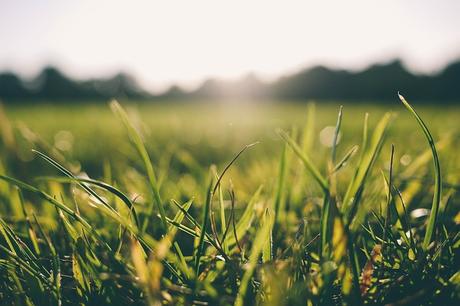What is Green Living?
Green living is a lifestyle change that helps enhance environmental sustainability through conservation of the available resources. It also entails behaviors that are environmental friendly and a great way to contribute to Mother Nature. Green living is characterized by a healthy lifestyle whilst contributing positively to the environment.
The green movement creates awareness on the importance of protecting the environment. Additionally, it allows individuals to shun destructive ways and replace them with better habits that are geared towards a cleaner and safer life. Green living is refreshing and helps people experience life in a more beneficial perspective.
In this context, we explore 35+ ways of green living.

35+ Impressive Ways to Live and Stay Green
- Use reusable bags anytime you go shopping. Plastic bags consume a lot of resources during production. They also constitute most of the waste since they do not decompose. Reusable bags are more eco-friendly. Stores should offer discounts if the customers bring their own reusable bag to popularize this practice.
- Use paper saving techniques when printing. Such practices include double-sided printing rather than one-sided printing and saving up waste paper for recycling.
- Re-gift some of the items like clothes. Items can also be donated or given to friends. This reduces clatter and waste in the houses especially for the items that are no longer in use. Individuals may read books and magazines in libraries instead of buying new ones.
- Buy items in thrift shops rather than buying new stuff. This will help save money and also reuse stuff. An individual may also opt to rent stuff instead of buying new things.
- Ensure that waste is recycled to ensure that resources are used efficiently. Producers can also ensure that goods are packaged with recyclable materials.
- Use compact fluorescent bulbs. They save a lot of energy than incandescent bulbs. They are also durable and last 10 times longer. Most importantly, they cut down our electricity bills.
- Use bamboo, cloth or PVC-free plastic curtains. Ensure that you replace the vinyl shower curtains that are commonly used. This will help avoid the plastic-y smell that the vinyl curtains produce. Vinyl is also harmful to the environment as it emits dangerous chemicals.
- Consider use of pans with cast- iron instead of non-stick pans. Non-stick pans are manufactured using fluoropolymers to create the slick surfaces. This chemicals pose a threat to the environment especially when cooking at high temperatures. The chemicals produce carcinogenic compounds that are linked to various forms of cancer.
- Purchase soap that is free from anti microbial ingredients such as triclocarban and triclosan. Research has shown that soaps free from this antimicrobial agents work perfectly. The antimicrobial agents are associated with allergies, hormone disruption and impaired reproduction. Ensure that you stock up soaps that do not have this ingredients,
- Ensure that freezer space is maximized. Keeping the freezer space full saves more money and makes it easier when preparing meals. Cooling up an empty space takes up more energy thus the freezer should remain stocked.
- Make natural weed killer. This will save up more instead of buying insecticides that are environmental pollutants. DIY pesticides can be made by mixing dishwashing soap and undiluted vinegar.
- Clean laundry using cold water. This saves up on energy. Most of the energy utilized by a washing machine is used up when heating the water. Detergents are effective in removing stains than hot water.
- Water the lawn during evenings. Watering of plants during hot and dry weather will lead to using a lot of water. It is advisable to water the plants when it is cool especially during the evening and very early in the morning to conserve water.
- Practice mulching. The mulch may be from fence cuttings or grass. It aids in water conservation, controls growth of weed and also act as a source of nutrients for the plant.
- Embrace meat free meals often. The meat can be replaced with high density plant proteins and other sources of plant protein. Meat has been associated with the development of cardiovascular diseases, diabetes and other lifestyle diseases.
- Avoid disposing electronic waste. Electronic waste contains mercury and lead that are harmful to the ecosystem. Donate old electronics and also recycle this electronic waste.
- Ensure that goods are bought in bulk. Buying in bulk is cheap and also helps save on the packaging. Ensure that you shop smart buy buying high quality and long lasting goods.
- Purify water using a water filter instead of purchasing bottled water. Bottled water is not only expensive but also generates tons of waste that cause pollution. When traveling carry a reusable aluminum bottle instead of a plastic bottle.
- Lobby for the construction of bike lanes and sidewalks. This will create more space for the bikers and pedestrians.
- Bike or walk to walk. This is a good strategy as it is beneficial to the health and also saves on fuel. Walking and biking are forms of physical activity that help prevent obesity, cardiovascular diseases and diabetes. They also reduce traffic jams.
- Minimize the time taken in the shower. This will conserve the water as well as the energy used in case of a hot shower.
- Plant drought resistant crops. Such crops do not require watering in the dry seasons. This will save water.
- Use a clothesline or drying rack to dry cloths. This practice saves energy and costs. A lot of energy is used up when machine drying. Drying racks are suitable alternatives.
- Use biogas. Biogas is eco-friendly and cheap to use. It is a better than LPG gas that is commonly used in our homes today. Biogas plants also utilize plant and animal waste. This is a good example of recycling.
- Practice judicious ways of conservation energy. Such practices include switching off the lights when not in use, unplugging electrical appliances when not in use. Plugged-in appliances continue to use electricity even when not in use.
- Practice rainwater harvesting. This is an important practice of ensuring water conservation. It is done by harvesting of rainwater during the wetter seasons of the year and using it during the dry seasons. This minimizes the usage of water from the water bodies. The water can be used for irrigation in our farms and also watering the lawns in our homes.
- Planting trees in home compounds. Trees provide shade and perfect air conditioning for our homes. Trees ensure that there is clean air for us to breathe creating a perfect air conditioner. This helps to cut down the electricity costs from the use of air conditioning appliances.
- Encourage the use of drip irrigation. Some of the water from daily activities may be used in drip irrigation. This saves daily water consumption.
- Reuse old furniture. It is common to dispose of old furniture and opt for new furniture. The old furniture should be sold off or donated to charity where they can be reused. The old furniture can also be re-sculptured and redecorated to save wood.
- Use ceramic cups to consume the daily cup of coffee rather than using disposable mugs. This ensures that there is less waste and also ensures the overall conservation of the ecosystem.

- Make use of electronic mails. Electronic mails are paperless and a good way to minimize the usage of paper. Technology has made this possible reducing the usage of paper and envelops. This has reduced the production of paper and also minimized cutting down of trees.
- Control the portions of the food consumed. This is good element of healthy living. It also helps to control obesity and also reduces food wastage in the household.
- Raise eco-conscious children. Children should be educated on the importance of the environment. This will make them make healthy and informed choices. The parents should ensure that the learning process is interactive and interesting.
- Use natural products for personal care. Natural products are healthy options as they are free from toxins. Opt for natural skin care products to maintain a healthy skin.
- Consume local organic foods. Food is the most important aspect of going green. Most of the foods that we consume come from miles away most of which is unhealthy.
- Grow potted house plants. They help to improve air conditioning. Eventually, this eliminates the use of air conditioners.
- Hibernate the computer. Screen savers consume as much energy as when the computer is in use. Ensure that you hibernate the computer when it is not in use. The computer should also be shut down before sleeping to conserve energy.
- Ensure that doors and windows are shut while heat is on. Outside temperature makes it difficult to heat up a room and results to use of a lot of energy. Ensure that the room is airtight when air conditioning and heating.
- Opt typing your notes on a laptop or tablet instead of writing on paper. Using a laptop will create a reliable electronic reference. Papers easily wear off and create a lot of waste. This practice will help saving paper.
- Fix water leaks as soon as possible to conserve water.
- Avoid dumping of wastes in water bodies to avoid pollution. Individuals should take environmental stewardship to solve the environmental problems and create a sustainable ecosystem.
- Go solar. Solar charges are readily available for laptops, iPods, phones and other electrical devices and they offer an impressive means of reducing your energy consumption.

